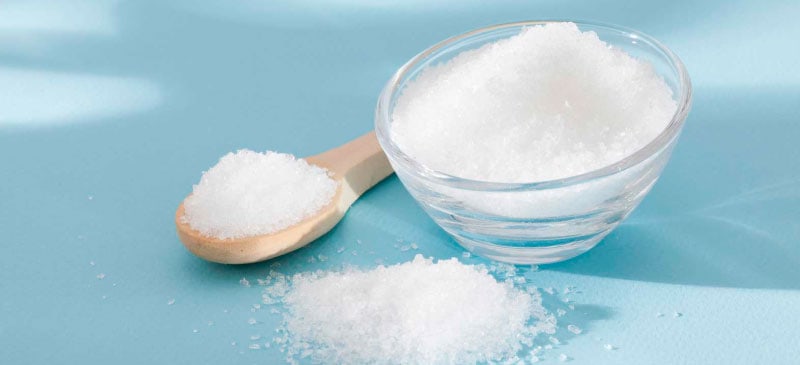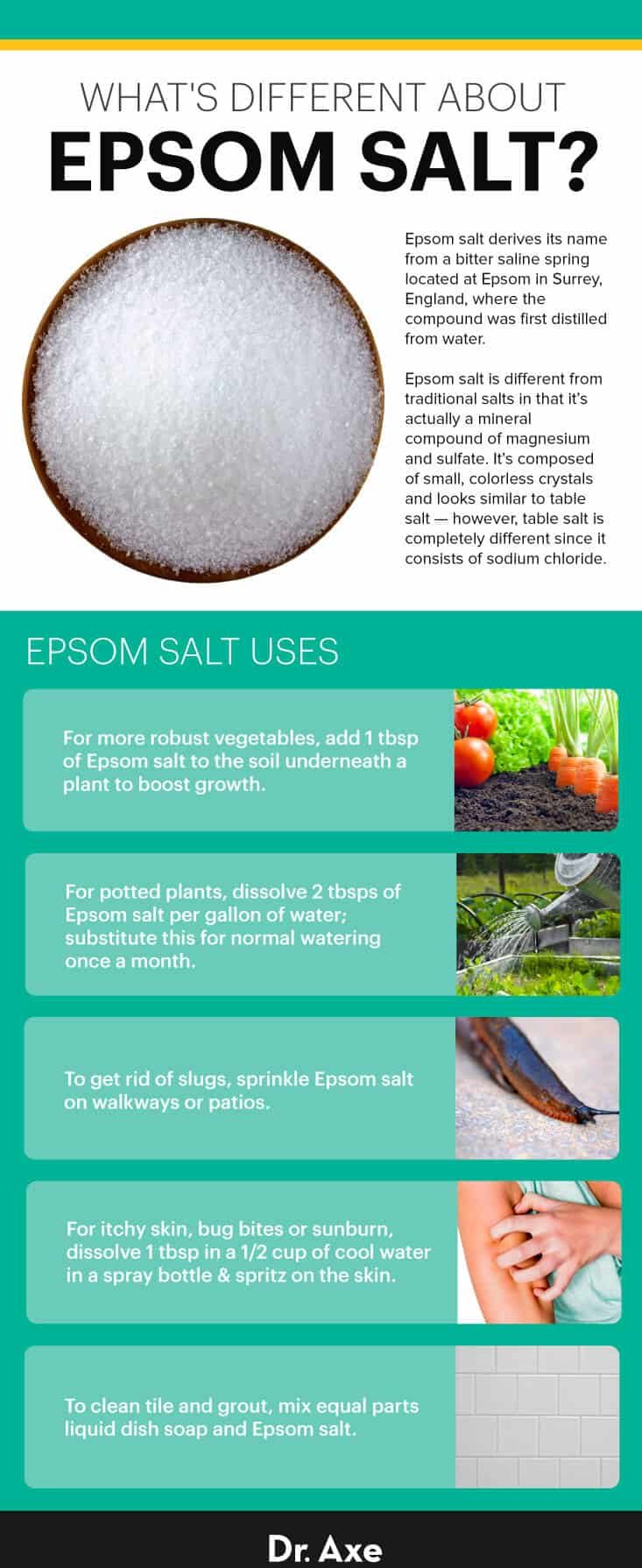This Dr. Axe content is medically reviewed or fact checked to ensure factually accurate information.
With strict editorial sourcing guidelines, we only link to academic research institutions, reputable media sites and, when research is available, medically peer-reviewed studies. Note that the numbers in parentheses (1, 2, etc.) are clickable links to these studies.
The information in our articles is NOT intended to replace a one-on-one relationship with a qualified health care professional and is not intended as medical advice.
This article is based on scientific evidence, written by experts and fact checked by our trained editorial staff. Note that the numbers in parentheses (1, 2, etc.) are clickable links to medically peer-reviewed studies.
Our team includes licensed nutritionists and dietitians, certified health education specialists, as well as certified strength and conditioning specialists, personal trainers and corrective exercise specialists. Our team aims to be not only thorough with its research, but also objective and unbiased.
The information in our articles is NOT intended to replace a one-on-one relationship with a qualified health care professional and is not intended as medical advice.
Epsom Salt: the Magnesium-Rich, Detoxifying Pain Reliever
January 31, 2023

Athletes commonly use it for sore muscles while gardeners sprinkle it on plants to increase their growth. We’re talking about Epsom salt, of course. Epsom salt has a long history of diversified use and benefits for health, beauty, household cleaning and outdoor gardening.
Epsom salt is a natural exfoliant and anti-inflammatory remedy that can be used to treat muscle aches, dry skin and even fight various internal health issues. Simply add Epsom salt to your next bath or foot soak to create a luxurious and therapeutic at-home spa experience. Unlike other salts, external contact with Epsom salt does not leave the skin feeling dry. In fact, it actually leaves it feeling soft and silky.
Another huge benefit of this incredible salt is its magnesium content. According to a 2018 scientific review, you can have a magnesium deficiency even when your serum magnesium levels are normal. In addition, it’s been found that most people need an additional 300 milligrams of magnesium per day in order to lower their risk of developing numerous chronic diseases.
This is just one of many reasons to add this salt to your routine.
What Is Epsom Salt?
Epsom salt derives its name from a bitter saline spring located at Epsom in Surrey, England, where the compound was first distilled from water. It’s different from traditional salts because it’s actually a mineral compound of magnesium and sulfate. It was originally prepared from mineral water, but today it’s mainly obtained from mining operations.
The chemical formula for magnesium sulfate is MgSO4. That means it can actually be broken down into magnesium and sulfate, which is a combination of sulfur and oxygen. The salt consists of small, colorless crystals and looks similar to table salt. However, table salt is completely different from Epsom salt since it consists of sodium chloride.
How does Epsom salt work? It contains magnesium, a mineral that is crucial to the human body’s functioning. Some of the key roles of magnesium include keeping blood pressure normal, heart rhythm steady and bones strong. The other main ingredient, sulfate, is an essential mineral key to many biological processes. It helps flush toxins, cleanse the liver, and assist in the formation of proteins in joints and brain tissue.
Related: Foods High in Sulfur and Their Benefits
Health Benefits
1. Boosts Magnesium Levels
Appropriate levels of magnesium are absolutely key to good health, but it is very common to have insufficient magnesium. Alcoholism, severe diarrhea, malnutrition or high calcium levels (hypercalcemia) can all cause hypomagnesemia or low levels of magnesium. By simply soaking your feet or entire body in a bath containing Epsom salts, you can increase internal levels of magnesium naturally without taking magnesium supplements.
Magnesium regulates over 300 enzymes in the body and plays an important role in organizing many bodily functions. These vital functions include muscle control, energy production, electrical impulses and elimination of harmful toxins.
Magnesium deficiencies are associated with a number of chronic diseases, including type 2 diabetes, Alzheimer’s disease, high blood pressure, heart disease, stroke and attention deficit hyperactivity disorder (ADHD). By boosting your internal magnesium levels through external use of Epsom salt, you can help improve or ward off many avoidable health ailments.
2. Reduces Stress
Is soaking in Epsom salt good for you? Everyone has heard of the recommendation to have a good soak in a warm bath after a rough day. Whether it’s rough mentally, physically or both, a hot (again, not too hot) bath is such a great way to relieve stress. If you want to amplify the stress-reducing benefits of a nice, long soak, then add a cup or two of Epsom salt to your bathwater. Not only does the magnesium help relax your muscles, but it can also help relax your mind.
According to research from the University of North Carolina, hypomagnesemia enhances stress reactions. Further studies show that magnesium has a profound effect on stress and neural excitability. Magnesium salts, such as Epsom salt, can reduce stress and may improve neuropsychiatric disorders.
Magnesium is critical to the production of energy in cells. By increasing magnesium, you can feel revived without feeling restless. It’s a much more calm energy as opposed to how people feel revived from caffeine consumption.
3. Eliminates Toxins
The sulfates in Epsom salt assist the body in flushing out toxins. That provides a heavy metal detox from the body’s cells. This can help lower the internal accumulation of harmful substances. Human skin is a highly porous membrane. By adding minerals like magnesium and sulfate to your bathwater, it sparks a process called reverse osmosis, which literally pulls salt out of your body and dangerous toxins along with it.
As part of a healthy weight loss and detox plan, detox baths with magnesium sulfate and baking soda are sometimes recommended. This doesn’t mean that Epsom salt weight loss is really “a thing,” but since the salt can discourage water retention and promote elimination (more on that next), it’s not a bad idea to add it to a holistic weight loss approach.
4. Relieves Constipation
Can you drink Epsom salts? Epsom salt is an FDA-approved laxative and commonly used to naturally relieve constipation. When taken internally, it acts like a natural laxative by increasing water in the intestines and cleansing the colon of waste. A roundup of studies published in Therapeutic Advances in Gastroenterology notes that there is strong evidence that Epsom salt “has potent laxative effect in vitro through the release of digestive hormones and neurotransmitters.”
Internal use of magnesium sulfate can bring about temporary relief from constipation, but like any laxative, Epsom salt for constipation is not meant to be a long-term solution or a substitute for a healthy high-fiber diet.
If a laxative solution is a must, it’s smart to avoid many of the harsh laxatives on the market today. Why? They are commonly loaded with artificial colors and flavors and questionable chemicals. To take magnesium sulfate orally, a typical suggestion is to dissolve one dose in eight ounces of water. Stir this mixture and drink all of it right away. You may add a small amount of lemon juice to improve the taste.
Drink plenty of liquids while consuming an Epsom salt laxative to prevent dehydration. Magnesium sulfate taken orally should produce a bowel movement within 30 minutes to six hours.
5. Reduces Pain and Inflammation
A warm bath containing Epsom salt is known to ease pain and relieve inflammation. This makes it a beneficial natural treatment sore muscles, headaches (including migraines) and arthritis pain.
Soaking in warm water is one of the oldest forms of alternative therapy for arthritis. If you include Epsom salt, the bath becomes so much more therapeutic. According to the Arthritis Foundation:
Data collected by the National Academy of Sciences show most Americans don’t get enough magnesium, a mineral that’s important for bone and heart health. One way to help remedy that: bathing in … Epsom salts. They’re relatively inexpensive, can be found at grocery and drug stores and can boost magnesium levels as much as 35 percent, according to researchers at the University of Birmingham in the United Kingdom.
Have an annoying and painful splinter stuck in your hand? Soak the problem area in warm water and Epsom salt, and the splinter should be drawn out of the skin in no time! Soreness after childbirth? Epsom salt can help with that, too. In general, healthy levels of magnesium from Epsom salt use can help overall bodily inflammation since low magnesium has been linked with higher C-reactive protein, a marker of inflammation in the body.
6. Improves Blood Sugar Levels
Type 2 diabetes is frequently associated with both extracellular and intracellular magnesium deficiencies. Meanwhile, healthy magnesium levels are linked with a reduced risk of developing diabetes. As you now know, Epsom salt is an excellent source of magnesium.
Regular intake of Epsom salts, either orally or transdermally, may help regulate blood sugar, lowering the risk of diabetes and improving daily energy levels. Of course, check with your health care provider before using any new diabetes remedies.
7. Volumizes Hair
Adding Epsom salts to hair products can help decrease excess oil. Excess oil contributes to hair looking flat and weighed down. One easy way to create your own volumizing conditioner at home is to combine equal parts salt and conditioner (example: two tablespoons conditioner plus two tablespoons Epsom salts).
After shampooing hair as usual, apply the volumizing conditioner mix to hair, coating it from the scalp to the ends. Leave the mix in for 1o to 20 minutes before rinsing. This is a great weekly hair treatment.
8. May Boost Plant Health
Epsom salt garden usage is common and for good reason — it works as a natural fertilizer. Epsom salt is known to enhance the vibrancy of plants. It can also help them to grow better and even bigger, though some experts remain skeptical. Still, many gardeners love using Epsom salt for tomatoes, roses and peppers, and some people find it increases plant yields.
Some suggested ways to use epsom salt for plants include:
- When planting vegetables or roses, sprinkle around one tablespoon of Epsom salts into the planting hole.
- Combine one tablespoon of salt per gallon of water to use as a foliar spray, and apply when the plants start to flower and again when young fruit appears.
9. Helps Breathing Problems
Magnesium sulfate has also shown success as a natural treatment for bronchial asthma. A scientific review published in 2012 points out that magnesium sulfate “has been considered as an adjunct therapy for severe and life-threatening asthma exacerbation.”
The first clinical use of magnesium for asthma was actually reported back in 1936. Studies show magnesium relaxes bronchial smooth muscles in a dose-dependent manner. Today, the use of magnesium sulfate intravenously is an add-on therapy along with standard treatment in acute and severe asthma exacerbations.
10. Helps Prevent Preeclampsia
Preeclampsia is a potentially dangerous pregnancy complication characterized by high blood pressure. Magnesium sulfate is one of the ways some doctors and pregnant women use to improve or help to prevent preeclampsia. Research shows it has in vivo and in vitro vasodilator properties.
What is a vasodilator? It’s something that helps widen blood vessels and improve blood flow. Magnesium sulfate is especially known for its use in the management of severe cases of preeclampsia to prevent the progression to eclampsia, which is the onset of seizures in women with preeclampsia.

Uses
1. Epsom Salt Bath Recipe
Without a doubt, one of the most common Epsom salt uses is its inclusion in a bath. Combining Epsom salt with baking soda and lavender oil makes for a simple, easy bath recipe to help you calm down, relieve tension on your muscles, and recover all-around both mentally and physically. Check out our Homemade Healing Bath Salts recipe.
Recommendations of how much Epsom salt for bath water can vary. For an Epsom salts detox bath, add at least two cups of Epsom salt to bathwater and soak for 40 minutes total. The first 20 minutes give your body time to remove toxins from your system, while the last 20 minutes allow you to absorb the minerals in the water and help you emerge from the bath feeling rejuvenated. Make sure to consume water before, during and after the bath to protect yourself from dehydration and increase detoxification.
Epsom salt is a key ingredient in many detoxifying bath recipes. Use it as a stand-alone salt for soaking, or blend it with dried botanicals and essential oils for a more decadent bathing experience.
2. Epsom Salt Foot Soak
If you haven’t tried a DIY foot soak or a detox foot bath, you’re overdue to see what Epsom salt can do for your feet. Including Epsom salts in a foot bath can help boost magnesium and provide relief for tired, sore feet.
In addition, Epsom salt can help infections. Soaking an infected foot or other area of the body in magnesium sulfate water may help to draw out toxins and promote healing of the infected tissue.
3. Bone and Joint Pain Relief
When used in a bath or compress, Epsom salt may offer some relief from how uncomfortable you feel. Try soaking in a relaxing bath containing Epsom salt, which is a common natural remedy for joint and bone pain.
4. Heel Spur Aid
Since magnesium is key to bone health, Epsom salt can be a great holistic remedy for a heel spur. A displacement of calcium on the bone causes a heel spur to form on the underside of the heel. Heel spurs can be mildly to extremely painful. One natural solution for healing a heel spur is to soak the foot in a hot (but not too hot) bath with Epsom salt, which helps relieve inflammation and pain.
Risks and Side Effects
Never use a higher dose of Epsom salt than the package label recommends or as your doctor directs. Magnesium sulfate taken orally can make it harder for your body to absorb other medications you take by mouth, especially antibiotics. Avoid taking other medicines within two hours before or after you take magnesium sulfate as a laxative.
If you have rectal bleeding or if you do not have a bowel movement after using magnesium sulfate as a laxative, stop using the medication and call your doctor at once. These may be signs of a more serious condition.
Magnesium in any form, including Epsom salt, must be used with caution in patients with renal failure, since it is processed by the kidneys and can reach toxic levels easily in those patients. Magnesium sulfate is often used to successfully treat preeclampsia and eclampsia in pregnant women, but pregnant or nursing women should generally exercise caution and consult their doctors before using.
Common side effects of excessive intake include mild gastrointestinal upset, including nausea, abdominal cramping and/or diarrhea. Serious side effects of magnesium sulfate overdose include allergic reactions (rash, hives, itching, breathing difficulties, chest tightness, or swelling of the mouth, face, lips or tongue), dizziness, flushing, faintness, irregular heartbeat, muscle paralysis or muscle weakness, severe drowsiness, and sweating. You should tell your doctor immediately if you experience any of these symptoms after using Epsom salt. Serious side effects of Epsom salt are rare when used in recommended dosages.
As always, if you have any questions, are pregnant, nursing, being treated for a medical condition or currently take medication, check with your doctor before internal or external use.
Final Thoughts
- Epsom salt, also known as magnesium sulfate, has a long history of use as a holistic remedy for a wide variety of health concerns.
- Its benefits are known to include a boost in magnesium, stress reduction, toxin elimination, pain relief and blood sugar improvement.
- This salt is also a recommended natural remedy by arthritis experts for relief from joint pain and inflammation.
- It’s also used to treat breathing problems like asthma, and help women prevent or treat preeclampsia and eclampsia.
- It is commonly taken internally for constipation relief. While a better choice than many conventional laxatives, it is not meant to be a long-term solution.
- Epsom salts can be used in a garden or house plants as a natural fertilizer to boost health and growth.
- Try a salt soak (bath or just feet) after a long day, and don’t be surprised if you feel a lot more relaxed when you’re done.










